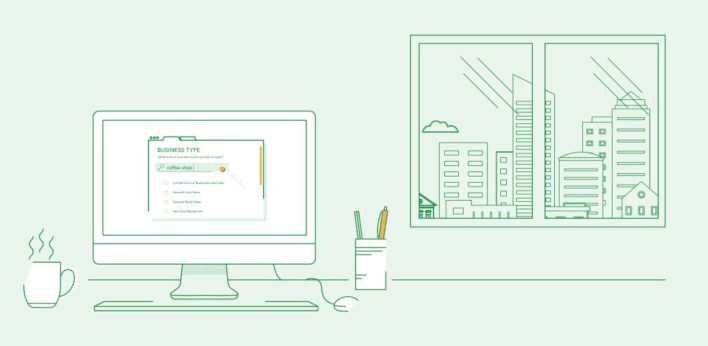Business owners and local governments have a symbiotic relationship. The former want to open businesses that become successful and attract customers in droves, and the latter want those businesses to open and thrive to keep their economies strong and make their cities premier destinations for dining, shopping, and innovation.
And what do these symbiotic relationships hinge upon at their outset? Permits.
Unfortunately for many cities, permit discovery — the process of identifying all of the permits an applicant needs to open a new business — is confusing, arduous, and time-consuming. But with so much riding on efficient permitting operations and the role it plays in economic development, municipal agencies need to take a step back and gauge whether their permit discovery processes are providing a seamless applicant experience and maximizing efficiency for City Hall.
If your agency is in a similar boat, it might be time to rethink your permitting operations. Start by asking yourself these questions:
- Can applicants easily identify which permits they need for their projects and how much they’ll cost?
- Are we making clear what the exact requirements are for each permit and whom the applicant should contact to clarify those requirements?
- Is our staff able to promptly respond to the sea of phone calls, emails, and in-person questions from constituents?
If you couldn’t answer yes to all of those questions, then permit discovery might be a problem in your city. If that’s the case, let’s dive deeper and break down five major issues that make permit discovery a headache for applicants and staff alike.
Problem 1: Applicants don’t know where to begin with permit discovery.
A local foodie — let’s call her Sophie — wants to open her first restaurant in your town, and she’s ready to get started with the permit discovery process. Does she head to the Office of Economic Development? Or the Planning Department? Maybe she has to talk with someone at the Health Department first?
If your municipality isn’t making it clear to constituents what their first steps should be when it comes to permit discovery, chances are they’re already frustrated — and the process hasn’t even officially begun. A few audacious applicants will attempt to pore over regulatory codes to plot their course, but the lion’s share will start making phone calls, followed by emails, and eventually a trip to City Hall itself to get the answers they need.
Not only does that make for a poor and inefficient constituent experience, but it also means municipal staff will spend countless hours fielding those questions about early-stage hypothetical projects — hours they can’t spend on permit review and issuance, which actually bring revenue to the city.
Problem 2: Individual departments can only provide some of the answers applicants need.
Now Sophie decides to start a conversation with the Health Department. She makes the trip downtown, finds parking, waits in line, and speaks with a staff member, who gives Sophie all of the information she needs to get the permits she’ll need from that office. Great!
Not so fast — the Health Department is just one of seven departments that need to issue permits for that new restaurant. And the Health Department won’t have the information Sophie needs for any of the permits handled by other departments. All of the time Sophie took to get that first batch of information will need to be repeated again . . . and again . . . and again, until she’s met with every department involved.
Problem 3: Applicants are overwhelmed by complex requirements — to the point where it’s easy to miss one.
Sophie has now met with every department to get a list of the requirements she’ll need to fulfill to apply for all of the necessary permits for her restaurant. But given the complexity of those requirements, will Sophie understand every line item well enough to ensure her permits will be issued the first time around? It’s extremely unlikely. In fact, some cities reject as many as 97% of applications the first time around.
That’s partly because of the complexity of the permitting process in general. In many municipalities, someone looking to open a new business could need a dozen or more separate types of permits — and each of those permits will involve a dizzying number of details and dependencies, for example, identifying relevant NAICS codes, occupancy classifications, and more.
Remember, Sophie’s a chef! She’s by no means an expert in the city’s planning codes and building ordinances.
The other underlying factor? Many municipalities aren’t doing their constituents any favors by using vague or duplicative nomenclature when it comes to those requirements.
A large midwestern city, for example, has two departments that both issue permits called “Flame Permits.” So even when Sophie knows that she needs that permit, will she realize she needs two permits — one from the Health Department and one from the Fire Department? Again, not very likely.
That process becomes even more complicated — and painful — when a requirement falls between the cracks. Any given jurisdiction may have thousands of pages of land use and permitting regulations, making it nearly impossible for applicants to comply with everything. Even those who do their due diligence — like Sophie — may remain blissfully unaware of a legally required permit or license if no staff member at City Hall mentions that Sophie needs to speak to a given department.
And if that missing piece of the puzzle is a traffic impact fee, for example, the $30,000 bill Sophie receives late in the process will sting a lot, since she hadn’t budgeted for such a large expense.
Problem 4: Permit review and issuance take much longer than applicants expect.
In our hyperspeed, on-demand world, people want answers to their questions — fast, and on their terms. So if applicants expect to identify, apply for, and receive a permit within a specific time frame and your city’s staff is unable to deliver on that expectation, that’s a surefire sign that the permitting process is in trouble and will lead to disgruntled applicants and staff.
Think back on Sophie’s journey so far. She’s had to speak to seven different departments, each of which took a few days to get back to her with the answers she needs. Then there were a few rounds of follow-up questions, which took an additional week or two to clarify.
Given how many departments are involved in opening a new business, Sophie could be six, eight, or even 10 weeks in the permit discovery process at this point — and still, she’s not even close to filing for those permits.
Problem 5: City Hall is swamped by a backlog of permit discovery questions.
So far we’ve traced the constituent experience of permit discovery and the challenges entrepreneurs like Sophie need to overcome. But what about your colleagues at City Hall?
All of those phone calls, emails, and in-person visits Sophie needed to make to get all of that information for her permits? Someone needed to respond to every single one of those inquiries. Now magnify that process by the number of people looking to establish new businesses in your area every year, and it’s easy to see how much time they need to devote just in communications alone.
That’s potentially tens of thousands of hours every year spent answering questions related to permit discovery alone — and not on the revenue-generating processes of permit review and issuance.
Get to Know OpenCounter: Your Permit Discovery Partner
If Sophie’s journey sounds like the constituent experience in your city — and if the hours spent replying to phone calls, emails, and more sounds like the daily life of many of your City Hall colleagues — it’s time to improve your processes with the best permit discovery solution on the market.
That’s where OpenCounter enters the scene.
We’ve become the virtual permitting counter for dozens of municipalities across the country — from Cincinnati to Miami and from Detroit to Fort Worth. That’s because our suite of portals makes it easy for everyone to understand the permit discovery process, which permits they need, how much each of them costs, and how to apply.
What can that mean for your city? Increased business development, revenue growth, and maximized efficiency for your staff.
And what can that mean for the entrepreneurs in your area? A frictionless, easy-to-understand path to securing the permits they need to become a part of your city’s economic engine.
See for yourself how OpenCounter can modernize your zoning, permitting, and licensing systems, leading to greater efficiency and happier citizens. Get in touch and schedule a discovery session with us today.


